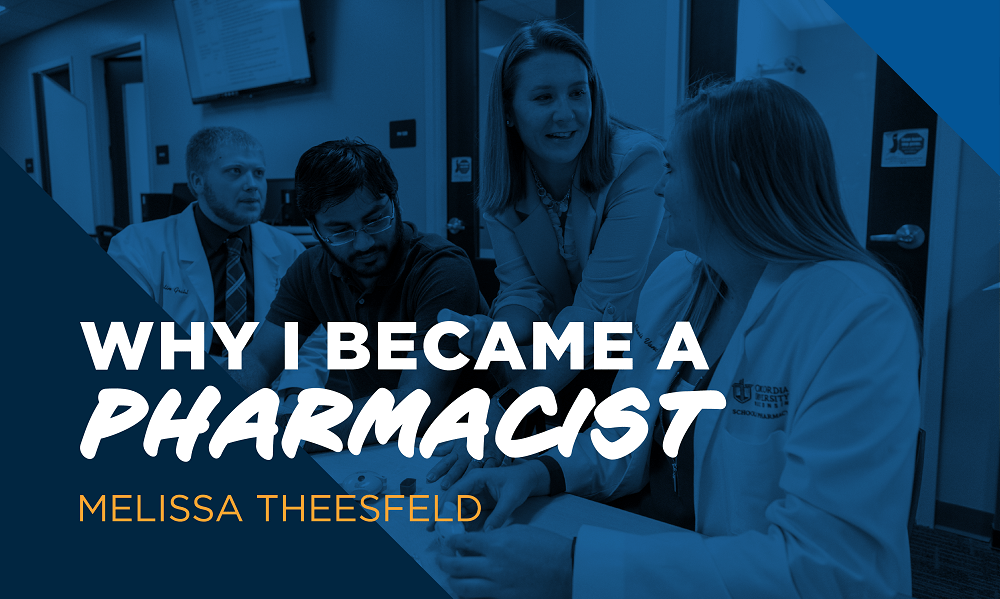
Choosing a career comes easy to some, but for others, it’s not always a clear path. Even faculty may not have thought about going into their field until later. Pharmacy professor Melissa Theesfeld told us what led her to a career in pharmacy.
Theesfeld graduated from UW-Madison with a BS in Medical Microbiology & Immunology in 2000. She later returned and in 2006 graduated with her PharmD. Theesfeld has worked as a pharmacist for the last 16 years. Read why she became a pharmacist below.
I became a Pharmacist because…
Initially, I didn’t know that I wanted to be a pharmacist. I stumbled upon this career path while working in a research lab in Madison while finishing my undergraduate degree. At the lab, I was able to interact with pharmacists who helped design new drugs and clinical trials for drug companies. At the time, I had no idea pharmacists were involved in those processes.
That experience led me to pharmacy school, where I fell in love with the hospital environment. I love the energy of hospital staff members and their facilities. And pharmacists can have a huge impact in hospital settings. The healthcare team relies heavily on pharmacists to make medication decisions that have immediate and long-term impacts on patients’ health.
What do you like about working with pharmacy students?
I love connecting pharmacy students with other pharmacy professionals. The pharmacy networks that develop and grow during pharmacy school are very important and influential throughout your career.
I oversee all the experiential rotations that students complete during the PharmD curriculum. I love helping pharmacy students figure out and achieve their career goals. It’s a great day when I can talk with students about what they’re hoping to do as a pharmacist and then connect them with a pharmacist practicing in that area or help set up a rotation for them to get a similar experience.
What keeps you engaged in the field?
The pharmacy field is continually growing and evolving. Pharmacists are providing care to patients in new and innovative ways. The implementation of pharmacist provider status in Wisconsin in the coming years will allow us to expand our services to more patients. This will allow pharmacists to bill for services for WI Medicaid patients.
Provider status ensures that pharmacists, as medication experts, are recognized as part of the integrated healthcare team. It’ll increase access to pharmacist-provided services by ensuring that pharmacists are equitably paid for the patient care services they provide.
What pharmacy organizations/associations are you involved with currently?
I’m an active member and recently finished a 3-year presidential term with the Pharmacy Society of Wisconsin. As PSW President, I represented all pharmacists, technicians, and pharmacy students across Wisconsin in advocacy and educational efforts. Additionally, I’m a member of the Greater Milwaukee College of Clinical Pharmacy (GMCCP), the American Society of Hospital Pharmacists (ASHP), and the American Association of Colleges of Pharmacy (AACP).
What advice do you have for pharmacy students?
Keep an open mind. There are so many areas of healthcare that pharmacists can practice in and new opportunities are created all of the time. Try things that you are unfamiliar with because you never know where you might find your passion.
RELATED: Faculty Spotlight: Dr. Michael Oldani
We are proud to have such knowledgeable and passionate faculty, like Melissa Theesfeld. If you’re interested in learning more about the pharmacy program at Concordia University Wisconsin, visit us below.